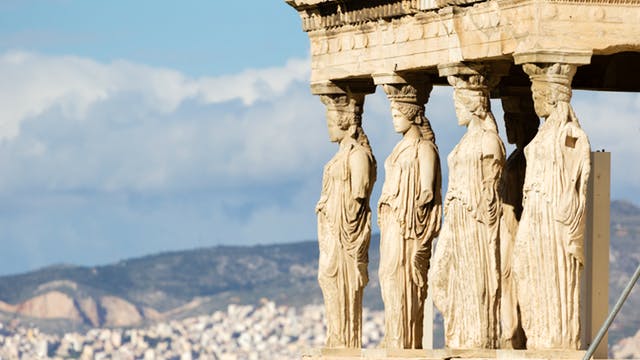All Greek to us
The Olympic Games are a Greek invention and an English re-invention. Much Wenlock in Shropshire gets the credit for reviving the games in 1850, 46 years before Baron Pierre de Coubertin staged the international revival in Athens.
But Chipping Campden claims to be the true birthplace of the modern Olympics. The official bid for the London Games included an acknowledgement of its inspirational role. The Gloucestershire market town first held an ‘Olimpick Games’ in 1612, with early spectators claimed to have included Shakespeare. Known locally as ‘Robert Dover’s Games’, the annual event takes place on Dover’s Hill on the Friday after the Spring Bank Holiday and features marching bands, fairground stalls and a variety of unusual sporting contests. One is shin-kicking, where players, wearing the traditional white smocks of shepherds, grasp each other by the shoulders and attempt to land well-timed blows to their opponent’s shins. Only then – in mid-kick – can a player attempt to bring his opposite

number to the ground. A ‘stickler’, the ancient name for a judge or umpire, is on hand to make sure a shin is hit before a fall can be scored. The Cotswold Olimpicks feature other rural challenges such as tug-of-war, sledgehammer throwing and ‘spurning the barre’, a Cotswold version of tossing the caber. The few thousand attending the event today are a far cry from the 30,000 said to have gathered in the 1830s. Growing popularity, and associated rowdiness, led to the games ending in 1852, a victim of the enclosures, but they were revived a century later

